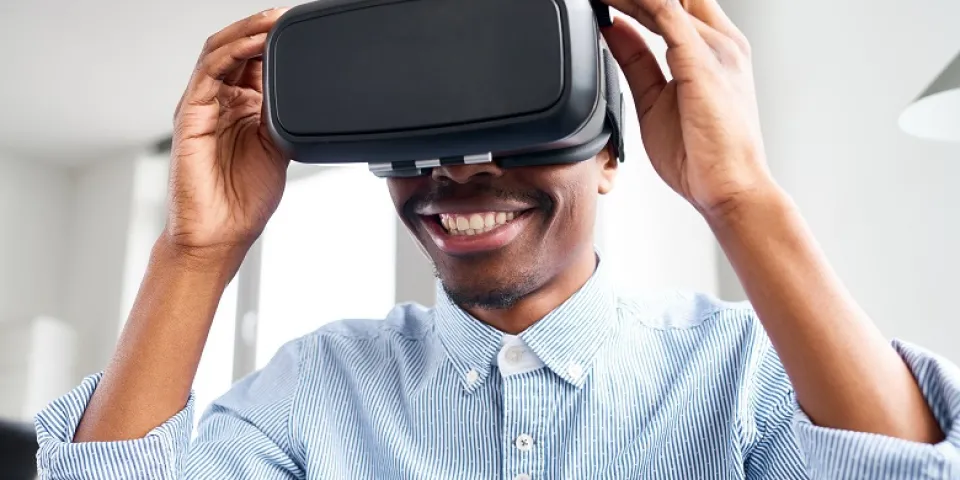Latest
How Virtual Reality is Changing the Way We Work
Jan 26, 2017

It's an exciting time for virtual reality, which became a billion-dollar industry in 2016. A variety of companies are adopting VR technology to serve their specific missions, markets and customers. As virtual reality becomes more affordable and accessible to the masses, its widespread use is likely to become as routine to mainstream culture as social media platforms. Because of this, virtual reality has the potential to affect everyone and needs to be understood by students preparing to enter the workforce.
Who is benefiting from VR technology?
Education professionals were among the early adopters of VR technology. Several schools already offer students a VR-based lesson plan. Using Google Cardboard, students can take virtual field trips to distant and exotic locations, like the Great Barrier Reef, Egyptian pyramids and even Mars. The New York Times is also engaging consumers in VR technology with the launch of its new NYT VR app, which uses video and storytelling to create an immersive user experience via a smartphone and headphones. Real estate professionals are also beginning to adopt VR technology. Realtors can now offer clients a 3D virtual tour of desired properties using a VR headset.
What does VR mean for today’s students?
VR is likely to have a significant impact on the future job market. Here are three steps that you can take to make sure you’re VR ready:
1. Do some additional research on businesses currently using VR and consider if the industry you plan on working in can make use of the technology. If so, how can you be an innovator in incorporating VR into your industry – either by bringing ideas to the table or by initiating this change yourself?
2. Engage your fellow students and teachers on the topic and ask for their thoughts on how virtual reality might influence the future. Creative innovation has more fertile ground among many minds.
3. Start getting familiar with VR technology yourself by downloading different apps such as the NYT VR app, which is free on your smartphone or tablet. Understanding VR's current capabilities and limitations will show you what's possible and where the technology needs to grow.
Interested in pursuing a technology degree? Learn more here.
Hal Fickett is the CEO of an Orlando-based marketing and design agency called Hal Fickett & Company. Before managing the firm, he was a professional actor, theater producer and worked in marketing and sales for NPR. Hal is currently earning his MBA in Project Management at Herzing’s Orlando campus and is expected to graduate in 2017. He is married to Gina, they attend NewCity church and are expecting their first child in May.
Bureau of Labor Statistics (BLS), U.S. Department of Labor, Occupational Employment and Wage Statistics 2023 / Occupational Outlook Handbook 2022. BLS estimates do not represent entry-level wages and/or salaries. Multiple factors, including prior experience, age, geography market in which you want to work and degree field, will affect career outcomes and earnings. Herzing neither represents that its graduates will earn the average salaries calculated by BLS for a particular job nor guarantees that graduation from its program will result in a job, promotion, salary increase or other career growth.
Latest
Recent Blog Posts
Subscribe to our Newsletter
Get the latest news you need to know, from study hacks to interview tips to career advancement. Have it delivered right to your inbox biweekly.








